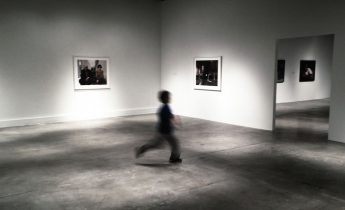Personal Details: Ruchniewicz, Krzysztof
Co-director (2016-2022) | Mitherausgeber
Krzysztof Ruchniewicz, Studia historyczne na Uniwersytecie Wrocławskim, Universität des Saarlandes w Saarbrücken oraz Phillips Universität w Marburgu; praca magisterska (1991) pt. Enno Meyer a Polska i Polacy. Z badań nad początkami Wspólnej Komisji Podręcznikowej PRL-RFN; rozprawa doktorska (2000) pt. Warszawa-Berlin-Bonn. Stosunki polityczne w latach 1949–1958; rozprawa habilitacyjna (2007) pt. Polskie zabiegi o odszkodowania niemieckie w latach 1944/45–1975; pracownik naukowy w Instytucie Historycznym Uniwersytetu Wrocławskiego (1991-); 2009 profesor nadzwyczajny Uniwersytetu Wrocławskiego; 2013 profesor tytularny; dyrektor Centrum Studiów Niemieckich i Europejskich im. W. Brandta Uniwersytetu Wrocławskiego (2002–2007 i 2009-); Zainteresowania badawcze: historia Niemiec i stosunków polsko-niemieckich w XX wieku; dzieje integracji europejskiej; polityka historyczna i kultura pamięci; dzieje Polaków w Niemczech; Public History, międzynarodowe badania podręcznikowe. Liczne publikacje, zob. http://www.krzysztofruchniewicz.pl/publikacje/publikacje.html
Krzysztof Ruchniewicz, PhD (*1967), is a professor at the University of Wrocław (since 2009) and director of the Willy Brandt Center for German and European Studies there. He studied history and East-European history at the University of Wrocław, at the University of Saarland in Saarbrücken, and at the Philipps University in Marburg. PhD (2000): „Warsaw – Berlin – Bonn. Political relations in the years 1949-1958“ (Polish); Habilitation (2007): „Polish efforts to German reparations in the years 1944/45-1975“ (Polish). Research Associate at the history department of University of Wrocław (since 1991). Research interests: history of Germany and the German-Polish relations in 20th century; history of European integration, issues of historical culture and history politics; history of the Polish in Germany, Public History, international textbook research.
Many publications, vide: http://www.krzysztofruchniewicz.pl/publikacje/publikacje.html
Krzysztof Ruchniewicz, Dr. phil. habil. (*1967), ist Professor an der Universität Wrocław und Direktor des dortigen Willy-Brandt-Zentrums für Deutschland- und Europastudien (2002–2007 und seit 2009). Studium der Geschichte und osteuropäischen Geschichte an der Universität Wroclaw, der Universität des Saarlandes in Saarbrücken und der Phillips-Universität in Marburg. Dissertation (2000): "Warschau-Berlin-Bonn. Politische Beziehungen in den Jahren 1949–1958" (poln.); Habilitationsschrift (2007): "Polnische Bemühungen um die deutsche Wiedergutmachung in den Jahren 1944/45–1975" (poln.); Wissenschaftlicher Mitarbeiter am Historischen Institut der Universität Wroclaw (seit 1991); 2009 außerordentlicher Professor der Universität Wroclaw. Forschungsschwerpunkte: Geschichte Deutschlands und der deutsch-polnischer Beziehungen im 20. Jahrhundert; Geschichte der europäischen Integration; Fragen der Geschichtskultur und Geschichtspolitik; Geschichte der Polen in Deutschland, Public History, internationale Schulbuchforschung.
Zahlreiche Publikationen, vgl.: http://www.krzysztofruchniewicz.pl/publikacje/publikacje.html
-
Pamięciowy lockdown
Memory Lockdown | Erinnerungs-Lockdown
Pamięciowy lockdown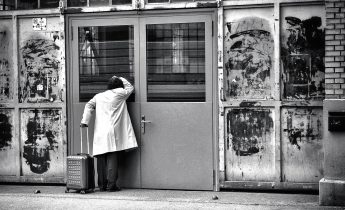
The year 2020 was supposed to be the year to commemorate anniversaries of important events. These were being prepared for months but stopped by Covid-19.
-
The End of World War II
Zakończenie drugiej wojny światowej | Das Ende des Zweiten Weltkrieges
The End of World War II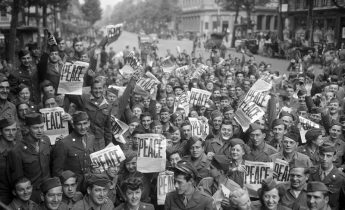
How should we talk about the end of WWII? What narratives should dominate this story? Does our factual approach to this important date still make sense?
-
Do we need a Code of Ethics for Public History?
Czy potrzebujemy kodeksu etycznego dla historii w przestrzeni publicznej? | Brauchen wir einen Ethik-Kodex für die Public History
Do we need a Code of Ethics for Public History?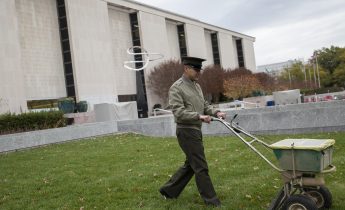
The rapid development of electronic media, including social networks, is forcing new behaviours, including dealing with public history.
-
Artistic License of the Author
(Do)wolność pisarza | Künstlerische Freiheit des Autors
Artistic License of the Author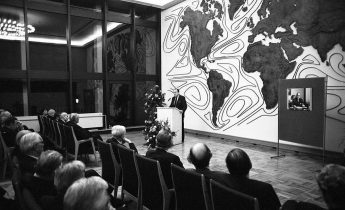
In German literature and history circles, artistic license recently became controversial: Robert Menasse's handling of quotations and his...
-
The Hidden Memory of the City: Fascist Rome
Ukryta pamięć miasta. Faszystowski Rzym | Verdeckte Erinnerung der Stadt: Das faschistische Rom
The Hidden Memory of the City: Fascist Rome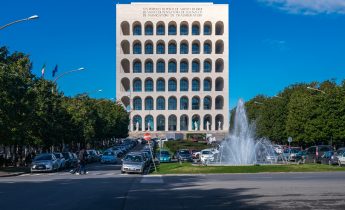
The name Rome triggers a wealth of associations. Remnants of fascism can be found virtually everywhere and, unlike other countries with a dictat...
-
Yet Another Memorial in Berlin?
Po co jeszcze jeden pomnik w Berlinie? | Wozu ein Polen-Denkmal in Berlin?
Yet Another Memorial in Berlin?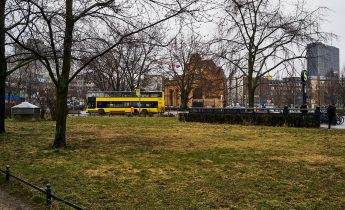
Should yet another monument in Berlin commemorate the Polish victims of the Second World War; in this case Polish citizens who suffered and died during the last war at the hands of German occupants?
-
Signs of Remembrance
Znak pamięci | Zeichen der Erinnerung
Signs of Remembrance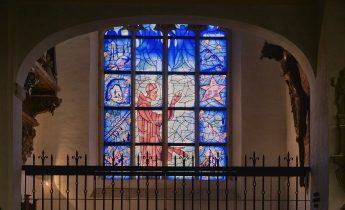
The Catholic churches in Poland are not just sacred objects, today they are also places of remembrance. One of many examples is the Zesłańców Sybiru (Chapel of the Siberian-deportees) in Wrocław.
